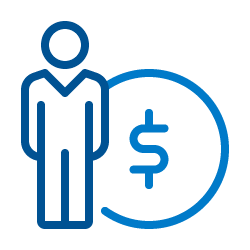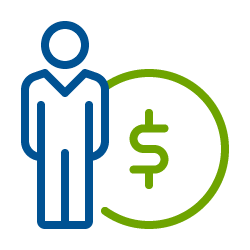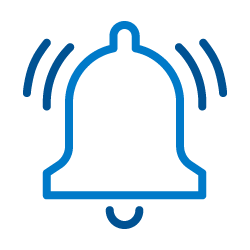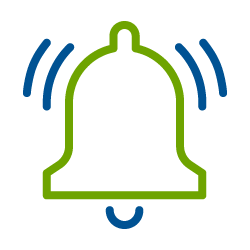Financial health: Taking control of your money one choice at a time

Improving your financial health doesn’t have to feel like a forfeit. It’s not about sacrificing everything you love. It’s about making smart, empowered choices that align with your goals. Whether you’re working to pay down debt, build savings, or plan for retirement, financial fitness begins with shifting your mindset from scarcity to strategy.
Rethink “sacrifice” as a “choice” for your financial health
Many people hear “budgeting” and immediately think of restrictions. But financial freedom starts with recognizing that every dollar you spend or save is a choice. Choosing to cook at home instead of dining out, for example, isn’t a sacrifice. It’s a decision to put your money where it matters most to you. You’re not giving something up; you’re making room for what you value more!
Even when choices are tough, like postponing a vacation to avoid credit card debt or weighing your child’s extracurricular activities against future college savings, remind yourself that these decisions are investments in long-term stability.
Live below your means (and ignore the Joneses)
In today’s hyper-connected world of social media, it’s tempting to compare your lifestyle to others. But remember, appearance doesn’t equal financial security!
One of the most powerful financial decisions you can make is to live below your means. Buy what you need, not what you can. Just because you’re approved for a $300,000 mortgage doesn’t mean you need to spend that much. A smaller, more affordable home can free up cash for retirement savings, your children’s education, or an emergency fund.
Focus on aligning your spending with goals that can provide lasting value. Don’t spend money just to “keep up with the Joneses.”
Build a safety net
According to recent data, 57% of Americans say they live paycheck to paycheck. Financial fitness requires a cushion. Aim to save at least one month’s worth of expenses to start. Then, gradually work toward three to six months. An emergency fund protects you from going into debt when the unexpected happens, like car repairs, medical bills, or job loss.
Start small by cutting back on everyday expenses. Meal plan around grocery sales, skip impulse purchases, and buy generic brands when possible. Set up automatic transfers to your savings on payday so you’re consistently paying yourself first without even thinking about it.
You can also look into debt consolidation or refinancing to reduce your interest payments and redirect those savings toward building your emergency fund or accelerating debt repayment. Every step can help grow your financial health.
Know your numbers
Just as a dieter tracks calories for their physical health, the financially fit track their income and expenses for their financial health. Take time to break down your monthly budget. What’s coming in? What’s going out? Where can you cut back?
If a large portion of your income goes toward debt, focus on paying it down faster. Increasing your payments, refinancing, or finding ways to earn additional income can all help. The more you chip away at your debt, the more freedom you’ll gain.
Don’t forget about the future!
Financial fitness and financial health isn’t just about today. It’s also about tomorrow. Planning for retirement might feel far off, but the earlier you start, the better. If your employer offers a 401(k) match, make sure you’re contributing enough to get the full benefit. Increase your contributions with each raise and regularly check that you’re on track for your retirement goals.
Meet with a financial advisor if you’re unsure where you stand. A second opinion can help you adjust your strategy and stay focused on long-term success!
The takeaway about your financial health
True financial fitness isn’t about perfection. It’s about progress. It’s about making thoughtful, informed choices that move you closer to your goals. Choose wisely, spend mindfully, and save with purpose. You have the power to shape your financial future, one choice at a time.














